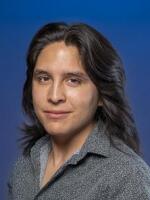Running can lead to a lot of injuries. So how can a runner remain fit while they heal?
From UNLV research, one solution seems to be running in deep water. Professor John Mercer is the acting chair of kinesiology and nutrition sciences. He's been doing research on treating running injuries in this very unique way.
There are three types of runners: injured runners, runners recovering from injury and those who are about to be injured, he said.
“It's a really tough sport, believe it or not. Runners are very susceptible to overuse type injuries due to the repetitive nature of running,” Mercer said.
On a 30-minute run, the average pace is 5,000 foot strikes.
“There’s a big force that is applied at the foot, and the body has to manage that force.”
If there are 100 people running in a marathon, about 75 of them will have some overuse injury, he said. Of those, 25 will need to stop running because of that injury. His research is trying to understand why and how to treat them.
He started this work because he was injured while running. He started running in deep water to treat himself, then ended up on the academic path for it.
What happens in water, Mercer said, is the foot isn’t touching the ground, so it removes the impact.
“What running in the water allows someone to do is to run, hopefully injury free or pain free, and then therefore still simulate running, which is a good thing,” he said. “Because you know running is not just a physical exercise. It's also a matter of coordination. And so if you can maintain some of that running coordination while you're trying to rehab that injury, that's probably a good thing.”
What makes his research tricky is finding people with the same injury.
“What we ended up doing is studying healthy runners, and then we tried to use that information to understand injury mechanisms or recovery mechanisms,” Mercer said.
He also co-hosts a weekly podcast, The Evidence-Based Triathlete, with Tedd Girouard, the program director for UNLV’s athletic training program.
John Mercer, professor and acting chair of kinesiology and nutrition sciences, UNLV










